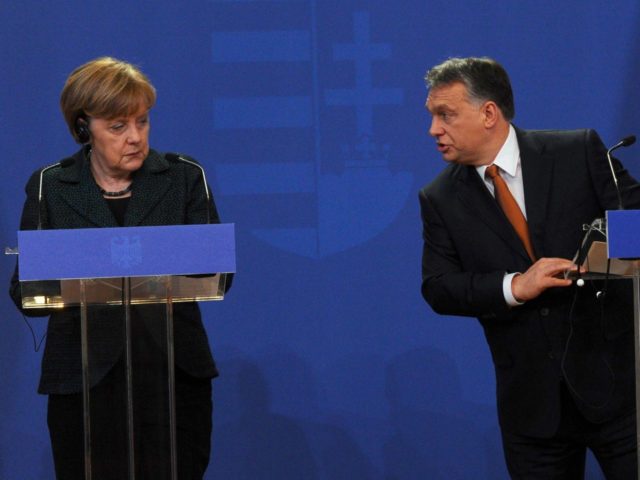Europe may be turning the corner on mass migration — at least in the popular discourse around the subject.
Writing — in a letter to the editor of the Financial Times — reader Will Thompson stated yesterday:
Sir, I read with great interest your report “Hungary and Poland fight their corner in clash with EU” (January 3), highlighting the competing visions among members of what the EU should look like. Perhaps certain matters such as immigration and judicial reform as raised by Viktor Orban and Mateusz Morawiecki should be reserved for the state. I can’t help but feel that if only these subjects had been discussed and taken seriously earlier within the EU we might not have ended up with a Brexit.
The fact that such a letter is being published in a key globalist outlet in 2018 is symptomatic of the overreach of the establishment in recent years. As Mr. Thompson says, without a push towards a United States of Europe, the European Common Market or a free trading Europe would almost certainly have remained attractive enough to Britons to not vote for Brexit, or have a referendum at all.
There are still — as there always will be — the extremists on the pro-EU side, not least Dimitris Avramopoulos, the European commissioner for migration, home affairs and citizenship.
Avramopoulous wrote for Politico Europe recently, stating: “Migration is our new reality. The time has come to start thinking, talking and acting about migration in a more comprehensive and long-term way, putting in place policies aimed at promoting integration and inclusion”.
In the piece he states his intention to move hundreds of thousands of more Libyans into Europe, lashing out at anti-mass migration advocates along the way:
Unfortunately, the recent discourse on migration — influenced by rising nationalism, populism and xenophobia — has limited our opportunities to put in place smart, forward-looking migration policies, at both the national and European levels.
…
We must start to be honest with those citizens who are concerned about how we will manage migration. We may not be able to stop migration. But we can be better, smarter and more proactive at managing this phenomenon.
When Avramopoulous says “managing this phenomenon” he is of course referring to the managed decline of Europe. We’ve seen it economically and culturally, but the man whose nation was wrecked by EU overreach is talking about demographic decline.
At the tail end of last year the Pew Research Center revealed that Sweden’s Muslim population could hit 30 per cent by 2050 if current migration patterns continue, with the figure hitting 14 per cent continent-wide unless there are radical changes to Europe’s attitudes and policies towards mass migration.
And while the party line across Europe is to insist the migrant crisis has abated, the pull factors remain, with France recently revealing a 100,000-strong asylum application list for 2017. The crisis in some nations is becoming even more serious, see Sweden for an example, a nation which recently announced a raise in its retirement age in order to financially accommodate migrants.
This is why Viktor Orban can now say things that would have had him hauled in front of the European Court of Human Rights (or something) back in 2014: “We do not consider these people to be Muslim refugees,” but as “Muslim invaders”.
This, after addressing a conference in Germany where he declared “2018 will be the year in which the will of the people will be restored, and that the European people will step-by-step ensure that decisions made in relation to immigration must serve their interests.”
Truly the Overton Window surrounding the debate on mass migration has shifted. This year represents an opportunity on both sides of the Atlantic, rather than doing deals for illegal immigrants and phoney border “walls”, to put the issue to bed once and for all.

COMMENTS
Please let us know if you're having issues with commenting.